Literature
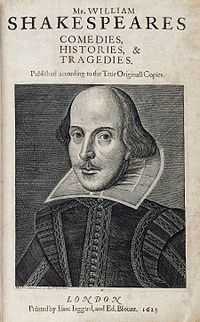
Literature "is the art of written work, and can, in some circumstances, refer exclusively to published sources."[1]
"The two major classifications of literature are poetry and prose (which can be further sub-divided into fiction and non-fiction)."[1]
"Literature may consist of texts based on factual information (journalistic or non-fiction), as well as on original imagination, such as polemical works as well as autobiography, and reflective essays as well as belles-lettres. Literature can be classified according to historical periods, genres, and political influences. The concept of genre, which earlier was limited, has broadened over the centuries. A genre consists of artistic works which fall within a certain central theme, and examples of genre include romance, mystery, crime, fantasy, erotica, and adventure, among others."[1]
Two others are science fiction and horror.
""Literature" is a highly ambiguous term: at its broadest, it can mean any sequence of words that has been preserved for transmission in some form or other (including oral transmission); more narrowly, it is often used to designate imaginative works such as [narrative] stories, poems, and plays; more narrowly still, it is used as an honorific and applied only to those works which are considered to have particular merit."[2]
Theory of literature
Def. “[t]he body of all written works”[3] is called literature.
The theory of literature involves methods of studying and investigating literature, its “nature and function”; “literary theory, criticism, and history; and general, comparative, and national literature.”[4]
Def. “[t]he theory or the philosophy of the interpretation of literature and literary criticism”[5] is called literary theory.
Strong forces
Def. “[t]he study, discussion, evaluation, and interpretation of literature”[6] is called literary criticism.
Debate
Def. “a type of literary composition, taking the form of a discussion or disputation”[7] is called debate.
Drama
Def. “[a] composition, normally in prose, telling a story and intended to be represented by actors impersonating the characters and speaking the dialogue”[8] is called a drama.
Essay
Def. “[a] written composition of moderate length exploring a particular issue or subject”[9] is called an essay.
“An essay is a piece of writing which is often written from an author's personal point of view.”[10]
Fiction
Def. a "[l]iterary type using invented or imaginative writing, instead of real facts, usually written as prose”[11] is called fiction.
Romance
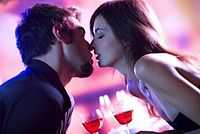
The "popularity of old-fashioned romance novels featuring conventional and traditional gender roles seems to defy the stances of the modern-day women's liberation movement."[12]
A romance novel might be characterized as a "hyper-romantic, contrived and extremely unrealistic tales of handsome, manly heroes falling in love with virginal women, enduring a series of adventures, then inexorably ending in a happy resolution."[12]
“Romance novels offer an escape from daily life with the belief that true love really exists.”[13]
Mystery
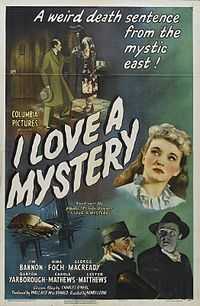
Def. a "suspenseful, sensational genre of story, book, play or film"[14], such as a "detective story, mystery novel, whodunit, crime fiction", is called a thriller.
"The scripts for the series [I Love a Mystery] were usually themed towards the dark and supernatural, with perhaps the most famous, or infamous (depending on your point of view) scenario being “Temple of the Vampires,” which aroused a great deal of censorial comment when first broadcast as a twenty-episode serial from January 22 through February 16, 1940."[15]
Crime
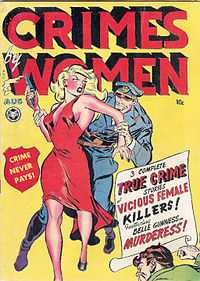
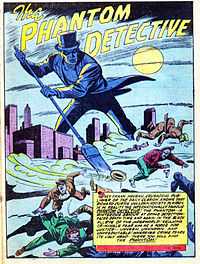
"Accounts of true crime have always been enormously popular among readers. The subgenre would seem to appeal to the highly educated as well as the barely educated, to women and men equally. The most famous chronicler of true crime trials in English history is the amateur criminologist William Roughead, a Scots lawyer who between 1889 and 1949 attended every murder trial of significance held in the High Court of Justiciary in Edinburgh, and wrote of them in essays published first in such journals as The Juridical Review and subsequently collected in best-selling books with such titles as Malice Domestic, The Evil That Men Do, What Is Your Verdict?, In Queer Street, Rogues Walk Here, Knave's Looking Glass, Mainly Murder, Murder and More Murder, Nothing But Murder, and many more…. Roughead's influence was enormous, and since his time "true crime" has become a crowded, flourishing field, though few writers of distinction have been drawn to it."[16]
Fantasy
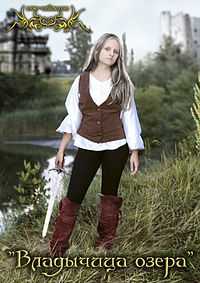
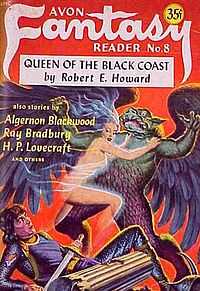
Def. a "literary genre generally dealing with themes of magic and fictive medieval technology"[17] is called fantasy.
Erotica
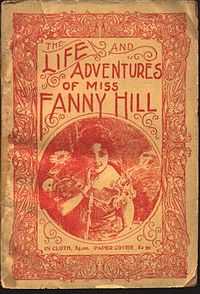
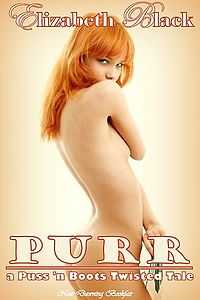
Def. literature "relating to or tending to arouse sexual desire or excitement"[18] is called erotic literature, or erotica.
On the left is a cover image from the new erotica e-book by Elizabeth Black called "PURR a Puss 'n Boots Twisted Tale".
Adventure
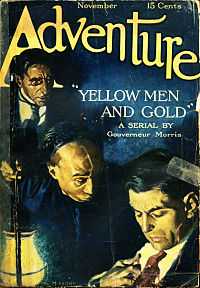
"Adventure fiction is a genre of fiction in which an adventure, an exciting undertaking involving risk and physical danger, forms the main storyline."[19]
"An adventure is an event or series of events that happens outside the course of the protagonist's ordinary life, usually accompanied by danger, often by physical action. Adventure stories almost always move quickly, and the pace of the plot is at least as important as characterization, setting and other elements of a creative work."[20]
Science fiction
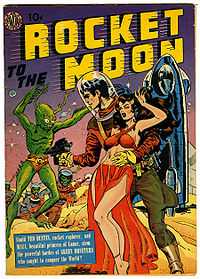
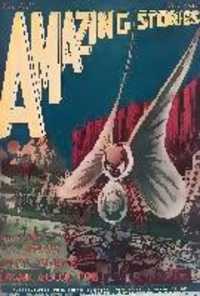
Def.' "[f]iction in which advanced technology and/or science is a key element"[21] is called science fiction.
Horror
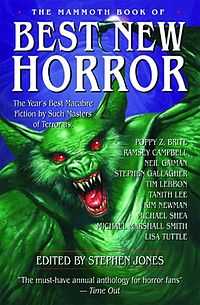
Def. a "genre of fiction, meant to evoke a feeling of fear and suspense"[22] is called horror.
Laws
Def. “[a] written or understood rule that concerns behaviours and the appropriate consequences thereof”[23] is called law.
Narratives
Def. "[t]he systematic recitation of an event or series of events"[24] is called a narrative.
"A narrative is a constructive format (as a work of speech, writing, song, film, television, video games, photography or theatre) that describes a sequence of non-fictional or fictional events."[24]
Further, "[t]he word "story" may be used as a synonym of "narrative", but can also be used to refer to the sequence of events described in a narrative. A narrative can also be told by a character within a larger narrative. An important part of narration is the narrative mode, the set of methods used to communicate the narrative through a process narration"[24].
Philosophy
Def. a written work “that seeks truth through reasoning rather than empiricism”[25] is called philosophy.
Plays
Def. "[a] literary composition, intended to be represented by actors impersonating the characters and speaking the dialogue" or "[a] theatrical performance featuring actors"[26] is called a play.
Poems
Def. “[a] literary piece written in verse”[27] is called a poem.
Geography

At the right is an allegorical painting in the Pinacoteca do Estado de São Paulo, Brazil, 1915.
It is one among many connected to the literature of the time preceded by a long and baroque heritage expressed even in the final years of the nineteenth century in various regions and in art and culture.
History
Def. “[a] [written] record or narrative description of past events”[28] is called history.
Natural sciences
Def. a written work “studying phenomena or laws of the physical world”[29] is called natural science.
Research
Hypothesis:
- Literature may also exist from other species or ancestors of hominins.
Control groups
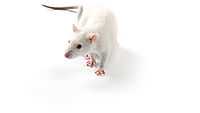
The findings demonstrate a statistically systematic change from the status quo or the control group.
“In the design of experiments, treatments [or special properties or characteristics] are applied to [or observed in] experimental units in the treatment group(s).[30] In comparative experiments, members of the complementary group, the control group, receive either no treatment or a standard treatment.[31]"[32]
Proof of concept
Def. a “short and/or incomplete realization of a certain method or idea to demonstrate its feasibility"[33] is called a proof of concept.
Def. evidence that demonstrates that a concept is possible is called proof of concept.
The proof-of-concept structure consists of
- background,
- procedures,
- findings, and
- interpretation.[34]
See also
- American Literature
- Ancient Egyptian Literature
- Contemporary Poetry
- Dominant group/Literature
- Exploring science through fiction
- Introduction to books
- Italian literature
- La Littérature Française
- Literature for teens
- Literature/Quiz
- Modernist Poetry
- Poems
- Post-Modernist Poetry
- Romantic poetry
- Victorian poetry
- Women in literature
- World Literature 1
References
- 1 2 3 "Literature, In: Wikipedia". San Francisco, California: Wikimedia Foundation, Inc. August 24, 2012. Retrieved 2012-08-27.
- ↑ "Humanities, In: Wikipedia". San Francisco, California: Wikimedia Foundation, Inc. August 3, 2012. Retrieved 2012-08-27.
- ↑ "literature, In: Wiktionary". San Francisco, California: Wikimedia Foundation, Inc. August 3, 2012. Retrieved 2012-08-27.
- ↑ Rene Wellek, Austin Warren (1956). Theory of Literature. Third Edition.. New York: Harcourt, Brace, & World, Inc.. pp. 375. http://eric.ed.gov/ERICWebPortal/recordDetail?accno=ED032803. Retrieved 2012-01-25.
- ↑ "literary theory, In: Wiktionary". San Francisco, California: Wikimedia Foundation, Inc. August 30, 2009. Retrieved 2012-08-27.
- ↑ "literary criticism, In: Wiktionary". San Francisco, California: Wikimedia Foundation, Inc. August 8, 2012. Retrieved 2012-08-27.
- ↑ "debate, In: Wiktionary". San Francisco, California: Wikimedia Foundation, Inc. August 8. 2012. Retrieved 2012-08-27.
- ↑ "drama, In: Wiktionary". San Francisco, California: Wikimedia Foundation, Inc. July 18, 2012. Retrieved 2012-08-27.
- ↑ "essay, In: Wiktionary". San Francisco, California: Wikimedia Foundation, Inc. August 15, 2012. Retrieved 2012-08-27.
- ↑ "Essay, In: Wikipedia". San Francisco, California: Wikimedia Foundation, Inc. August 18, 2012. Retrieved 2012-08-27.
- ↑ "fiction, In: Wiktionary". San Francisco, California: Wikimedia Foundation, Inc. August 25, 2012. Retrieved 2012-08-27.
- 1 2 Palash Ghosh (23 July 2013). "My View On 'Romance Novels': An Addendum, Explanation, Defense And Apology". International Business Times. Retrieved 2014-07-23.
- ↑ Anonymous female reviewer (23 July 2013). "My View On 'Romance Novels': An Addendum, Explanation, Defense And Apology". International Business Times. Retrieved 2014-07-23.
- ↑ "thriller, In: Wiktionary". San Francisco, California: Wikimedia Foundation, Inc. 28 May 2014. Retrieved 2014-07-23.
- ↑ Wheeler Winston Dixton (13 November 2010). "I Love a Mystery film series". Film Noir of the Week. Retrieved 2014-07-23.
- ↑ Oates, Joyce Carol (1999), "The Mystery of JonBenét Ramsey", The New York Review of Books, Vol. 46, No. 11, 24 June 1999.
- ↑ "fantasy, In: Wiktionary". San Francisco, California: Wikimedia Foundation, Inc. 9 January 2015. Retrieved 2015-06-24.
- ↑ "erotic, In: Wiktionary". San Francisco, California: Wikimedia Foundation, Inc. 16 April 2015. Retrieved 2015-06-24.
- ↑ "Adventure fiction, In: Wikipedia". San Francisco, California: Wikimedia Foundation, Inc. 1 June 2015. Retrieved 2015-06-24.
- ↑ D'Ammassa, Don. Encyclopedia of Adventure Fiction. Facts on File Library of World Literature, Infobase Publishing, 2009 (p. vii-viii).
- ↑ "science fiction, In: Wiktionary". San Francisco, California: Wikimedia Foundation, Inc. August 25, 2012. Retrieved 2012-08-27.
- ↑ "horror, In: Wiktionary". San Francisco, California: Wikimedia Foundation, Inc. 18 June 2015. Retrieved 2015-07-23.
- ↑ "law, In: Wiktionary". San Francisco, California: Wikimedia Foundation, Inc. August 3, 2012. Retrieved 2012-08-27.
- 1 2 3 "narrative, In: Wiktionary". San Francisco, California: Wikimedia Foundation, Inc. August 7, 2012. Retrieved 2012-08-27.
- ↑ "philosophy, In: Wiktionary". San Francisco, California: Wikimedia Foundation, Inc. August 10, 2012. Retrieved 2012-08-27.
- ↑ "play, In: Wiktionary". San Francisco, California: Wikimedia Foundation, Inc. August 22, 2012. Retrieved 2012-08-27.
- ↑ "poem, In: Wiktionary". San Francisco, California: Wikimedia Foundation, Inc. August 10, 2012. Retrieved 2012-08-27.
- ↑ "history, In: Wiktionary". San Francisco, California: Wikimedia Foundation, Inc. August 19, 2012. Retrieved 2012-08-27.
- ↑ "natural science, In: Wiktionary". San Francisco, California: Wikimedia Foundation, Inc. August 8, 2011. Retrieved 2012-08-27.
- ↑ Klaus Hinkelmann, Oscar Kempthorne (2008). Design and Analysis of Experiments, Volume I: Introduction to Experimental Design (2nd ed.). Wiley. ISBN 978-0-471-72756-9. http://books.google.com/?id=T3wWj2kVYZgC&printsec=frontcover.
- ↑ R. A. Bailey (2008). Design of comparative experiments. Cambridge University Press. ISBN 978-0-521-68357-9. http://www.cambridge.org/uk/catalogue/catalogue.asp?isbn=9780521683579.
- ↑ "Treatment and control groups, In: Wikipedia". San Francisco, California: Wikimedia Foundation, Inc. May 18, 2012. Retrieved 2012-05-31.
- ↑ "proof of concept, In: Wiktionary". San Francisco, California: Wikimedia Foundation, Inc. November 10, 2012. Retrieved 2013-01-13.
- ↑ Ginger Lehrman and Ian B Hogue, Sarah Palmer, Cheryl Jennings, Celsa A Spina, Ann Wiegand, Alan L Landay, Robert W Coombs, Douglas D Richman, John W Mellors, John M Coffin, Ronald J Bosch, David M Margolis (August 13, 2005). "Depletion of latent HIV-1 infection in vivo: a proof-of-concept study". Lancet 366 (9485): 549-55. doi:10.1016/S0140-6736(05)67098-5. http://www.ncbi.nlm.nih.gov/pmc/articles/PMC1894952/. Retrieved 2012-05-09.
Further reading
- William Harmon, C. Hugh Holman (2003). A Handbook to Literature, Eighth Edition. pp. 671. http://www.lavoisier.fr/livre/notice.asp?id=OR2WORA3L2ROWS. Retrieved 2012-01-25.
External links
- African Journals Online
- Bing Advanced search
- Google Books
- Google scholar Advanced Scholar Search
- Home - Gene - NCBI
- International Astronomical Union
- JSTOR
- Lycos search
- NASA's National Space Science Data Center
- NCBI All Databases Search
- Office of Scientific & Technical Information
- PsycNET
- Questia - The Online Library of Books and Journals
- SAGE journals online
- The SAO/NASA Astrophysics Data System
- Scirus for scientific information only advanced search
- SpringerLink
- Taylor & Francis Online
- WikiDoc The Living Textbook of Medicine
- Wiley Online Library Advanced Search
- Yahoo Advanced Web Search
| |||||||||||||||||||||||||||||||||||||||||
| ||||||||||||||||||||||||||||||||||||||||||||
| |||||||||||||||||||||||||||||||||||||||||||||||
| |||||||||||||||||||||||||||||
![]() This is a research project at http://en.wikiversity.org
This is a research project at http://en.wikiversity.org
| |
Development status: this resource is experimental in nature. |
| |
Educational level: this is a research resource. |
| |
Resource type: this resource is an article. |
| |
Resource type: this resource contains a lecture or lecture notes. |
| |
Subject classification: this is a literature resource. |